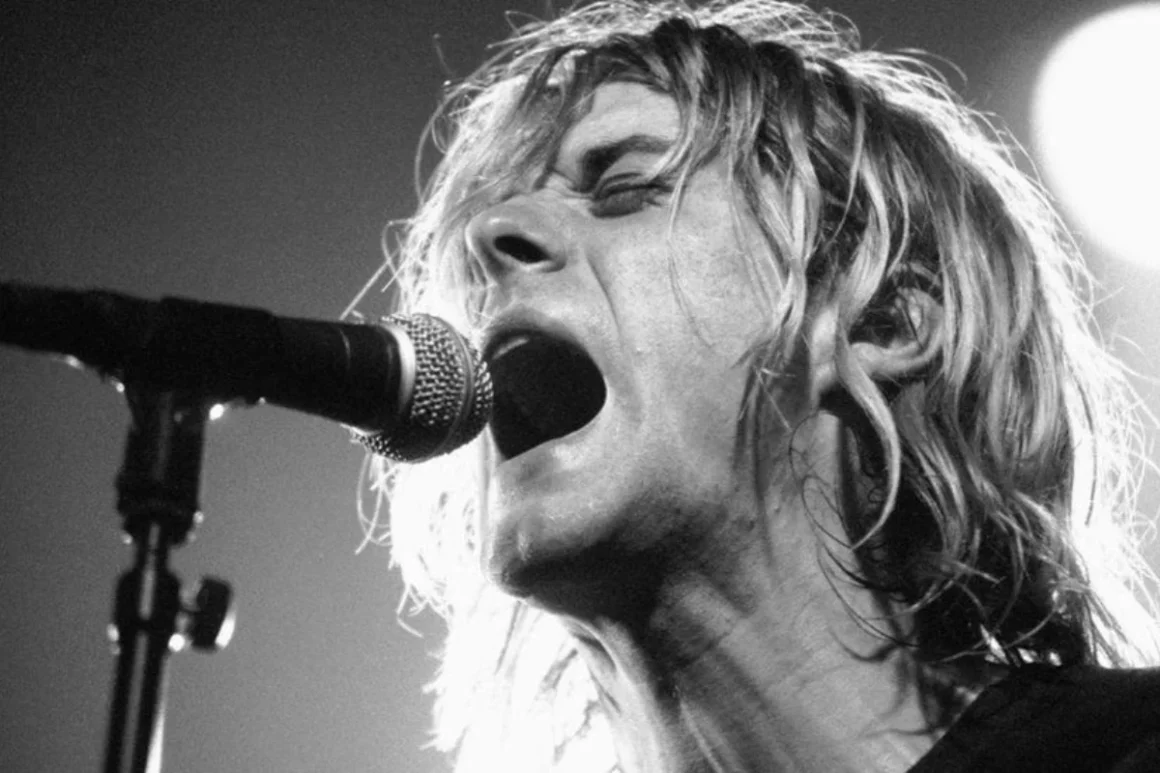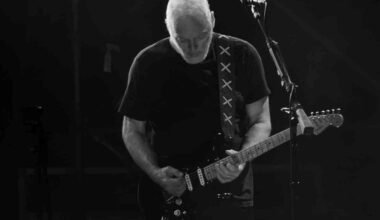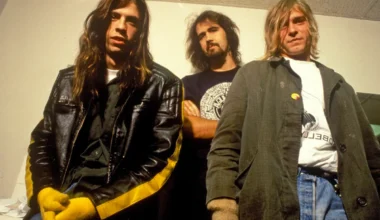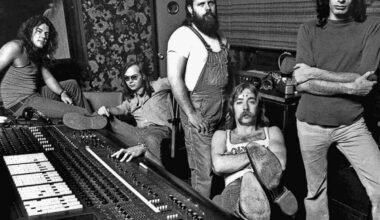Kurt Cobain’s punk spirit was the driving force behind his groundbreaking songwriting. It influenced every aspect of his work, from his raw sonic choices to his worldview, setting Nirvana apart from both mainstream bands and the other Seattle grunge acts that leaned heavily on classic rock and metal.
Blending Punk Fury with Beatles Melodies
One of Cobain’s greatest skills was blending the melodic charm of his favorite band, The Beatles, with the raw aggression of punk pioneers like the Sex Pistols. While punks typically rejected The Beatles, Cobain saw them as the original rebels.
He paired heavy bar chords and dissonant guitar riffs with catchy, harmonious vocals, creating a sound that resonated deeply with Generation X. Tired of the excess of glam metal and the stagnation of classic rock, Nirvana offered a visceral alternative that felt fresh and authentic.
Punk Ideals in a Commercial World
While punk was at the core of Cobain’s music, its philosophy also shaped his view on fame and society. Unlike many stars who sought fame, Cobain remained focused on artistry and integrity. He stood against the misogyny and superficiality of classic rock, calling out the likes of Aerosmith for their outdated views.
Cobain’s outspoken stance on issues like sexism, homophobia, and racism made him a voice for a generation that demanded change, both musically and socially.
Rejecting Fame and Feuding with Rock Stars
Cobain’s anti-establishment ethos caused tension as Nirvana gained mainstream success, especially after the release of Nevermind in 1991. He despised the new jock crowd that began attending their shows, feeling that they misunderstood the band’s message.
This attitude also led to a public feud with Guns N’ Roses frontman Axl Rose, whose personality and music represented everything Cobain stood against.
Late to Punk but Eager to Learn
Interestingly, Cobain wasn’t always a punk purist. Growing up, he loved bands like The Beatles, Aerosmith, and Led Zeppelin. It wasn’t until his late teenage years that he embraced punk. In a 1992 interview, he shared how British punk bands like the Sex Pistols and the Buzzcocks shaped Nirvana’s sound.
However, living in the isolated town of Aberdeen, Washington, Cobain had limited access to new music, and British punk was nearly impossible to find.
Finding Punk Through Buzz Osborne
Cobain’s introduction to punk came through Buzz Osborne of the Melvins, who made him a compilation tape that changed everything. That day, Cobain shaved his head, bought combat boots, and fully embraced the punk image—a far cry from the global rock icon he would become a decade later.
Moving Beyond Hardcore
Though British punk influenced his early work, Cobain eventually grew tired of hardcore punk’s limitations. He rejected what he called the “hardcore fallacy,” turning instead to experimental bands like the Butthole Surfers, whose weirdness had a significant impact on Nirvana’s sound.
Tracks like “Territorial Pissings” showcase this shift, blending punk’s raw energy with a more diverse and offbeat musical approach.
Cobain’s Legacy of Punk and Progress
Kurt Cobain’s ability to merge punk’s raw energy with melodic sensibilities made him a defining voice of his era. His unwavering commitment to punk ideals—both in music and in life—set him apart from the mainstream, making him a beacon for those seeking authenticity in a world of excess and compromise.







